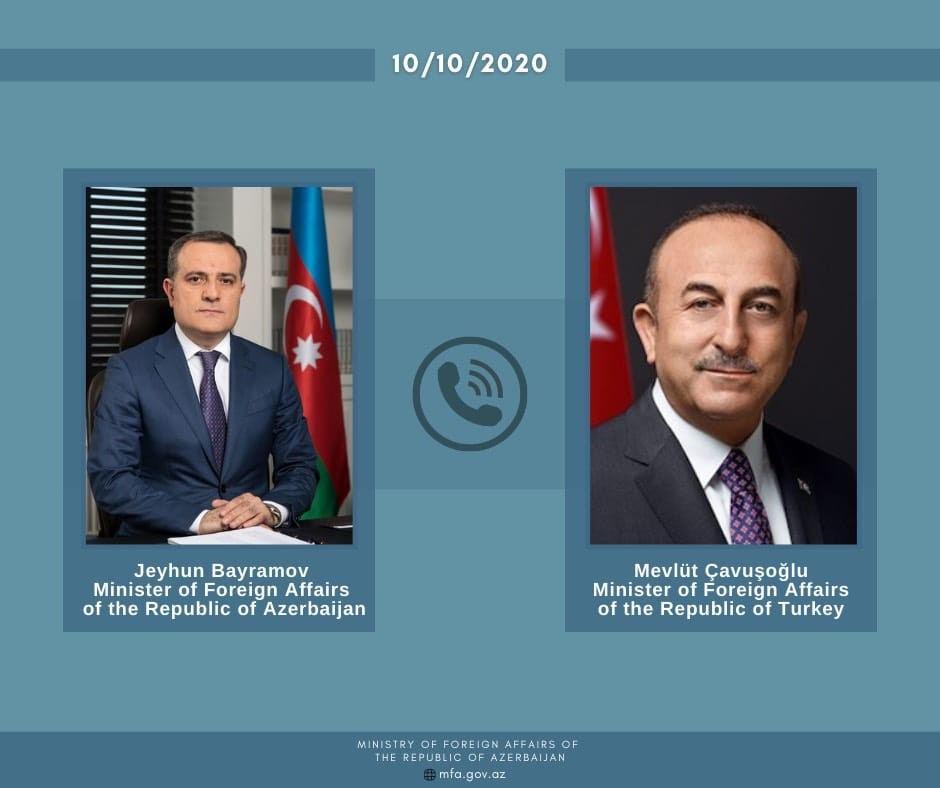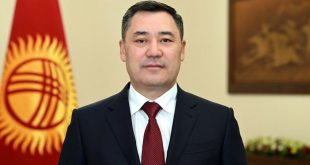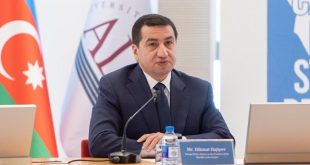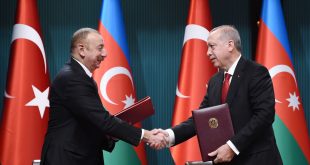
Azerbaijani Foreign Minister Jeyhun Bayramov and Turkish Foreign Minister Mevlut Cavusoglu held a phone conversation on Oct.10, Trend reports citing the Azerbaijani Foreign Ministry.
During the conversation, Bayramov informed his Turkish counterpart about the meeting of the foreign ministers of Azerbaijan and Armenia, held in Moscow with the mediation of the Russian Foreign Minister Sergey Lavrov.
The Azerbaijani minister noted that an agreement was reached between the Azerbaijani and Armenian sides on a temporary ceasefire for humanitarian purposes, and that the aggressor country was given the last chance to withdraw Armenian troops from the occupied territories of Azerbaijan.
Cavusoglu noted that the ceasefire, announced for the exchange of prisoners and bodies of the dead, is an important step, but not a way to resolve the conflict, stressing that Turkey will only support the solution that Azerbaijan accepts.
Bayramov, referring to the principled position of Azerbaijan, stressed the importance of the implementation of the UN Security Council resolutions to ensure peace in the region.
Foreign Ministers of Russia, Azerbaijan and Armenia adopted a joint document following consultations in Moscow, Trend reports citing Russian MFA.
The text of the document said that in response to the appeal of Russian President Vladimir Putin and in accordance with the agreements of Russian President Vladimir Putin, Azerbaijani President Ilham Aliyev and Armenian Prime Minister Nikol Pashinyan, the parties agreed on the following steps:
“1. A ceasefire is declared from 12:00 on October 10, 2020 for humanitarian purposes for the exchange of prisoners of war and other detained persons and bodies of the dead, mediated and in accordance with the criteria of the International Committee of the Red Cross.
2. The specific parameters of the ceasefire regime will be agreed upon additionally.
3. The Republic of Azerbaijan and the Republic of Armenia, with the mediation of the OSCE Minsk Group co-chairs, on the basis of the basic principles of settlement, are starting substantive negotiations with the aim of reaching a peaceful settlement as soon as possible.
4. The parties confirm the invariability of the format of the negotiation process”.
The conflict between the two South Caucasus countries began in 1988 when Armenia made territorial claims against Azerbaijan. As a result of the ensuing war, Armenian armed forces occupied 20 percent of Azerbaijan, including the Nagorno-Karabakh region and seven surrounding districts.
The 1994 ceasefire agreement was followed by peace negotiations. Armenia has not yet implemented four UN Security Council resolutions on the withdrawal of its armed forces from Nagorno Karabakh and the surrounding districts.
 Oval Useful news from Azerbaijan and Caucasus
Oval Useful news from Azerbaijan and Caucasus


